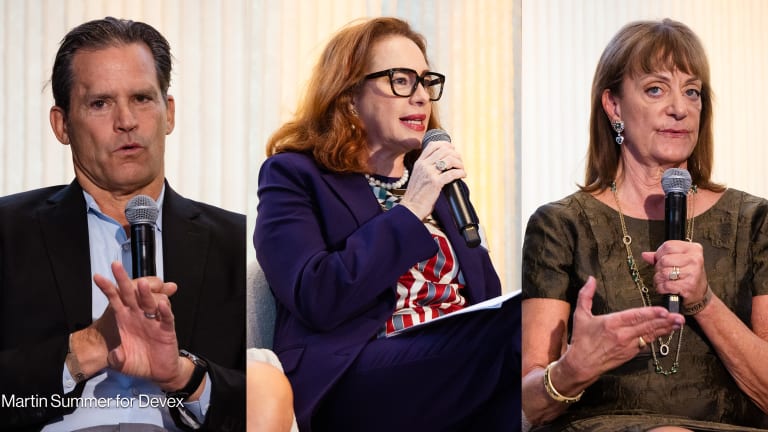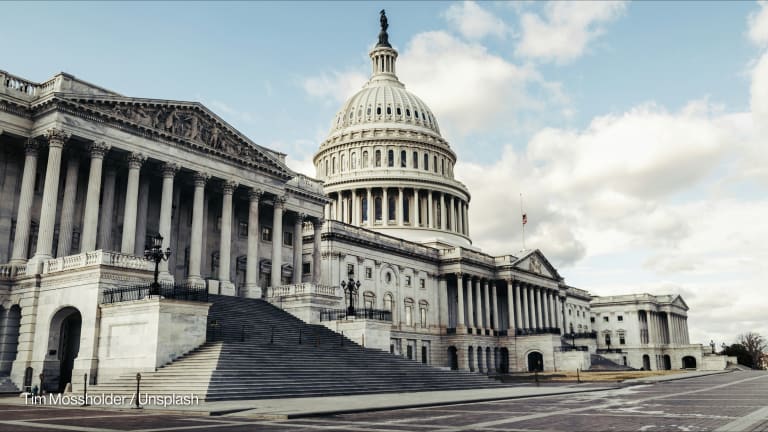
The U.S. Congress reconvened from its summer holiday earlier this week with a list of agenda items with major implications for U.S. foreign assistance programs.
While the debate over military action in Syria has put on hold a slate of other daunting legislative challenges, analysts, aides and lawmakers are working behind the scenes to shape the upcoming discussions over a number of major U.S. aid-related questions.
Devex is keeping tabs on five legislative issues development professionals should watch — from aid transparency to the 2014 budget — and speaking with insiders to hear about the biggest sticking points, opportunities for movement, and how decisions by Congress will ultimately affect development implementers around the world.
First up in our coverage series is Power Africa, President Barack Obama’s initiative to expand electricity access in sub-Saharan Africa.
Legislative efforts
In the coming weeks, U.S. lawmakers will have opportunities to send clear signals to the Obama administration, international energy developers and U.S. government implementing partners about how seriously Congress will support the administration’s “aspirational” goal.
In the House, Rep. Ed Royce has introduced the Electrify Africa Act, a bill calling on Congress to support a “comprehensive United States government policy” for sub-Saharan energy development, and which aims to “promote first-time access to electricity for at least 50 million people in sub-Saharan Africa by 2020.”
A companion bill — “Powering Africa” — is expected to be introduced in the Senate this fall, and advocates are busy seeking out co-sponsors.
Whether the bills become law and whether the “whole-of-government” effort those laws endorse is equal to the task of powering an energy-starved continent hinges on conversations taking place right now on Capitol Hill, Ben Leo, senior fellow at the Center for Global Development, who has been actively engaged in discussions on Capitol Hill, told Devex.
Using resources to meet the goal
The big questions are whether there is enough “bandwidth” for informed discussion and enough appetite for cooperation in Congress to tweak the U.S. government’s energy deal-making tools to mitigate risk for potential investors and push through road-blocked power transactions.
The Obama administration has at its disposal a variety of agencies and policy measures to influence how quickly and how extensively energy investment and development can happen on the African continent. Until the announcement of Power Africa, the government lacked a rallying cry to advocate a coordinated approach to U.S.-Africa energy development in order to achieve a clearly identified — albeit lofty — goal.
Now the target has been set, and reaching it will require utilizing government authorities to their maximum potential by unburdening them from past “bad policy,” said Leo.
Whether Power Africa amounts to a “legacy initiative” for Obama that aspires to relieve sub-Saharan African cities of rolling blackouts and pushes power to disconnected communities hinges in large part on the fate of an underfunded, under-authorized and short-staffed agency: the Overseas Private Investment Corp.
OPIC’s financing scheme
OPIC is the U.S. government’s international deal-making authority, with the power to finance transactions in developing-country markets private investors might find too risky to explore on their own.
From its investments OPIC has generated profit for 35 consecutive years, and the money the agency makes goes back into the U.S. Treasury. Last year OPIC’s 220-person staff created $272 million in profit for U.S. taxpayers. But its manpower and geographic reach is too limited to fully utilize the $16 billion portfolio at its disposal, so if the United States wants to play a role in transforming Africa’s power sector, OPIC will have to be a central, fully-empowered player, industry experts agree.
One of the main ideas being discussed behind the scenes on Power Africa legislation — especially the House bill which will probably be tweaked further before it passes — is direct Congress to allow OPIC to keep a percentage of its annual profits and cycle them through and ramp up its own operating expenses, Leo said. That would allow for more robust deal-making teams, including a more significant presence in Africa, where OPIC currently only employs one person.
Second, investors are waiting to see if Congress might authorize OPIC to issue equity financing, in addition to the debt financing it can already provide.
OPIC financing deals are structured in such a way that makes other financiers “subordinate” to the agency so OPIC gets paid back first, which is seen by some investors as government encroaching on the free market. However, with equity financing all investors own part of the investment, a different type of risk that many feel would encourage more investors to partner with the U.S. government on Africa energy deals.
That’s why, explained Leo, it can be difficult to get other financiers to put skin in the game when they know they’ll be in a subordinate position to OPIC under the U.S. government’s debt financing structure.
If Congress were to grant OPIC flexibility to deploy a “moderate” amount of equity financing, that might make the difference in cases where private financiers would be otherwise discouraged from investing, he added.
Authorization
Another signal Congress could send to the administration to show that it’s serious about supporting Obama’s drive to position the U.S. as a competitive player in the African energy market — and serious about expanding Africans’ access to electricity — would be getting away from the current practice of reauthorizing OPIC annually, and instead use Power Africa legislation to authorize the agency for three years, five years, or even permanently.
The annual authorization is “bad policy” that was never built into the vision for how OPIC should operate, said Leo.
For deals that take five or even 20 years to realize a profit, asking companies to partner with a government agency that may not exist next year, “inserts uncertainty into an operating environment that values certainty.” The House bill now calls for authorising OPIC funding through 2016.
While permanent authorization is unlikely with the current Congress, Leo noted that “the real debate is whether they can go to five years.”
Carbon cap
Finally, Congressional support for Power Africa will have to confront another issue that has divided some segments of the development community: OPIC’s carbon cap, which prohibits the agency from investing in projects that increase the amount of carbon emissions in the financing portfolio.
Many pro-poor groups, like the ONE campaign, have argued the limit places the burden of progressive climate change policy on communities in developing countries that barely contribute to the problem in the first place, while simultaneously barring them from the benefits of cheap electricity.
Others argue the cap provides one of the only assurances within Power Africa that a substantial proportion of the U.S. supported energy projects are renewable or off-grid solutions.
Leo sees an opportunity for compromise on this controversial issue — a very limited, narrow “carve out” for low-emitting poor countries in Africa, or even throughout the developing world.
On all of these questions about OPIC’s role, which many analysts consider critical to implementing a version of Power Africa that matches real action with the lofty ambitions expressed so far, strongly articulated bipartisan support will be crucial.
The language in the final bills and the “bipartisan political symbolism” they include will go a long way towards capitalizing on the momentum the initiative has already generated by appealing both to what Africans say they want and what U.S. and international businesses are eager to provide.
Stay tuned for our future coverage on U.S. aid reform issues being discussed in Congress.








